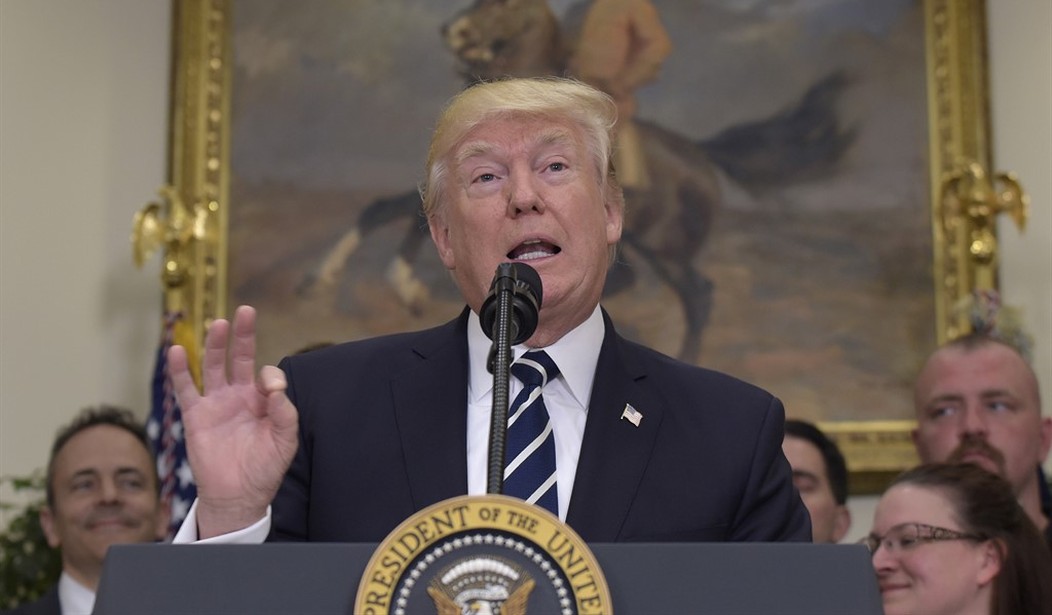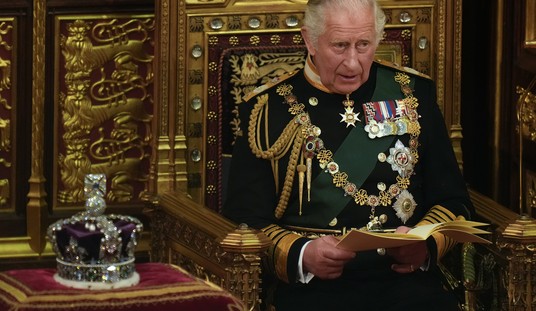No one’s surprised, right? For months, every time Trump’s been asked about DREAMers, he’s said something about having a “big heart” or hinted that young illegals will be “pleasantly surprised” or whatever.
There were two Obama amnesties. The second one, DAPA, was for illegal-immigrant parents of children who are U.S. citizens by virtue of having been born here. That one’s been frozen in litigation for years and is now rescinded effective immediately, by order of DHS Secretary John Kelly. The first amnesty, DACA, was for illegal-immigrant children who were brought here while they were young, have lived here for years, and who meet certain other qualifications. Enrollees are granted legal status and work permits, renewable every two years. Trump had a lot of options when he took office on how to handle that — he could have rescinded DACA entirely, as he promised to do last year; he could have kept the current permits in place but phased out the program by making those permits non-renewable; he could have maintained the program while closing it to new enrollees. Or he could have gone full Obama by keeping everything in place. The program stays open, current permits are renewable, new enrollees are welcome.
He went full Obama.
Q. Will this affect DACA?
A. This rescission [of DAPA] will not affect the terms of the original DACA program as outlined in the June 15, 2012 memorandum.
Q. Does this mean that DACA recipients will not be able to apply for a three-year work authorization, as established in the DAPA memorandum?
A. DACA recipients will continue to be eligible as outlined in the June 15, 2012 memorandum. DACA recipients who were issued three-year extensions before the district court’s injunction will not be affected, and will be eligible to seek a two-year extension upon their expiration. No work permits will be terminated prior to their current expiration dates.
Someone who recently got a three-year DACA permit (under the now rescinded DAPA rules) will be eligible to renew that permit in 2020, guaranteeing at least five years of legal status and encompassing Trump’s entire first term. By Mark Krikorian’s calculations, the program has been enrolling new participants to the tune of nearly 200 people a day under Trump, a figure that might now accelerate. After all, some would-be DREAMers have surely been holding off on registering, fearing that if they identified themselves to DHS, Trump and Jeff Sessions might use that information to find and deport them instead. Now Kelly’s guaranteeing their continued eligibility. Who knows how many new enrollees there’ll be soon.
This’ll be sold as a win for the Jared and Ivanka wing of the White House but even Steve Bannon reportedly nudged Trump to give DREAMers a break. I understand the argument for amnestizing them; what I don’t understand is getting nothing in return for doing it. Trump would have had a bit of extra leverage over Democrats on an immigration deal if he left DREAMers’ status ambiguous. The best I can do by way of explaining why he’d unilaterally disarm this way is to guess that this is a prelude to tougher enforcement measures towards other illegals. Now that he’s ratified Obama’s executive amnesty for young illegals, he has a defense the next time the media accuses him of being some “heartless” mass-deporter. Either that’s the strategy here or he’s hoping that cutting DREAMers a break will be seen by Democrats as a good-faith gesture that’ll encourage them to come to the bargaining table with their own concessions in mind. Good luck with that.
Here he is last year in Arizona at 2:50 vowing to rescind both — both — of Obama’s executive amnesties. Trump called DACA unconstitutional. How can he enforce it now?








Join the conversation as a VIP Member